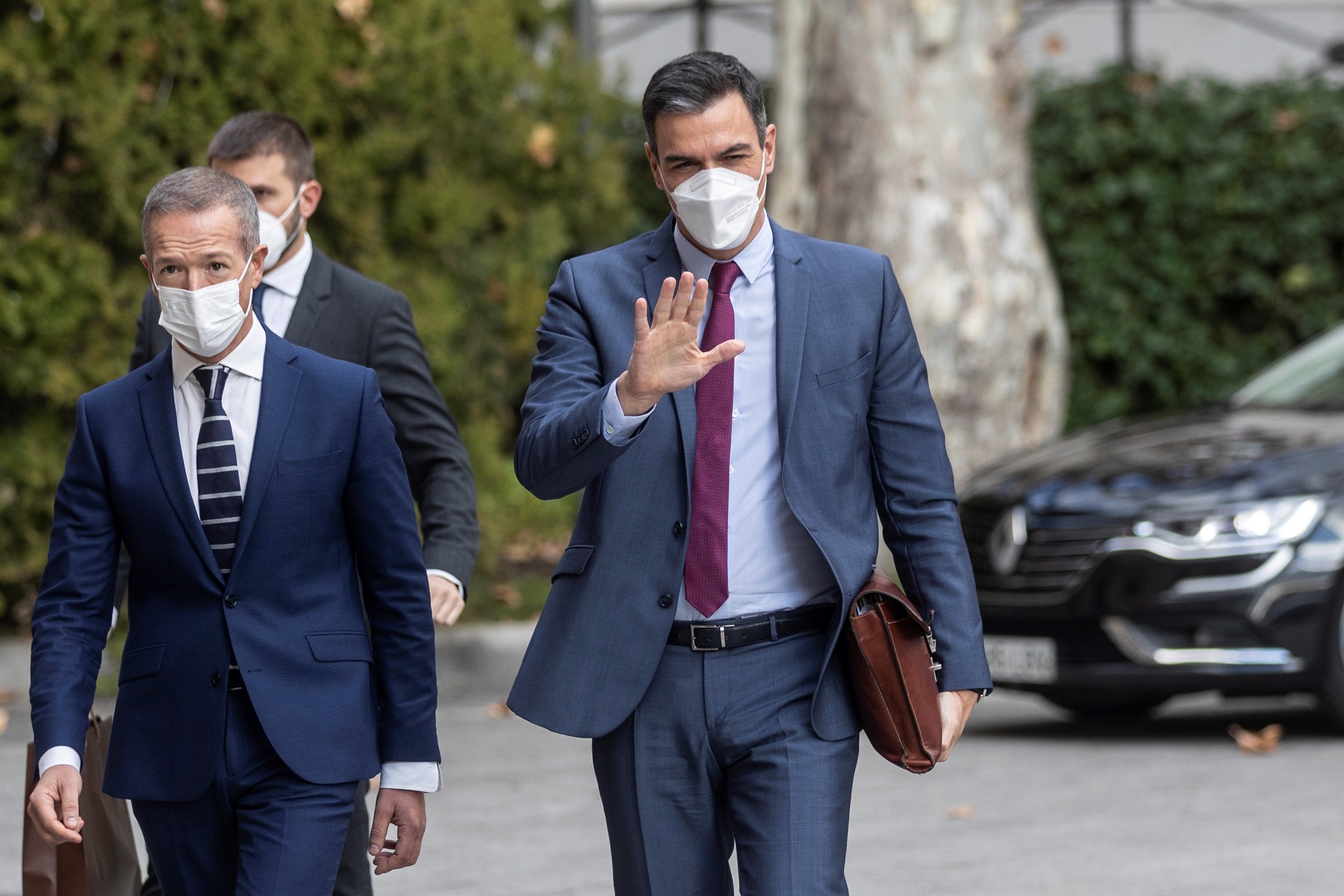Pedro Sánchez arrived at this Wednesday's conference of Spanish autonomous community presidents, held in the Senate, with an entire package of common measures to target Spain's sixth wave of coronavirus. These include a return to mask-wearing in outdoor spaces, the reinforcement of primary care with more health personnel, and the speeding up of the vaccination process. In addition, the Spanish government will give broad latitude to the autonomous communities themselves to implement their own restrictions - including the curfew in Catalonia, if it receives the endorsement of the High Court. Some autonomous presidents have conveyed their displeasure to Sánchez over the fact that he arrived with a set of measures already decided. Catalan president Pere Aragonès went further and described them as "clearly insufficient".
The most visible measure, according to Spanish government sources, is the re-establishment of the obligation to wear a mask when outside, a requirement that was abolished just before the summer holidays. It had been requested by several autonomous presidents, such as Valencia's Ximo Puig, the Basque lehendakari Íñigo Urkullu, Galicia's Alberto Núñez Feijóo and the Andalusian president Juanma Moreno Bonilla. This, in fact, is the only "restriction" in the Spanish government's new measures.
The bulk of the package affects the health sector directly, and especially in relation to the vaccination process, which it intends to "intensify and accelerate". According to the Spanish PM, the goal is to give a third vaccine dose to 80% of the population between the ages of 60 and 69 before the end of the year, boost 80% of the 50 to 59 age group before January 24th, and do the same to 80% of the 40 to 49ers by the first week of March. As for children, the goals will be to have jabbed 70% with their first dose by the week of January 7th and 70% with the second dose by the week of April 19th. To make this possible, Sánchez has announced that vaccine operations will be reinforced with vaccination teams from the Spanish armed forces and the use of the hospitals in the military health network.
Another aspect announced by the Spanish government is the strengthening of human resources. Without specifying figures, Pedro Sánchez announced the hiring of retired and pre-retired health personnel and an approval for hiring specialist professionals whose qualification were obtained outside the EU. It has also been proposed to increase the number of professionals available in primary and community care and improve their conditions, so that those on temporary contracts is reduced to 8% or less.
Other measures announced: the abolition of quarantines for close contacts of a case who are fully vaccinated, as already approved by the public health commission. As for testing, the Spanish government will issue temporary authorizations to allow certain antigen tests designed for professional use to be sold in pharmacies and thus be available to the entire population. The Covid certificate, as approved by the European Commission, will have a validity period of nine months from the last dose administered, from 1st February.
The Spanish cabinet will hold a special meeting tomorrow to approve a health ministry royal decree that regulates all this. Sánchez has also pledged to hold regular meetings of the conference of autonomous presidents for the duration of the sixth wave.
Aragonès calls for further restrictions
In the conference, Pere Aragonès stated that he considered the measures announced by prime minister Sánchez as "clearly insufficient", according to sources present at the meeting. In terms that were also expressed by Basque leader Íñigo Urkullu, the Catalan president called for "more courageous, coordinated and state-wide measures, with the appropriate nuances, adapting to the epidemiological reality of each territory". In fact, he explained the measures approved by the Catalan government, which are "in line with what many other European countries are doing". He made reference to the high volume of mobility between Spain's different territories during the Christmas period.

